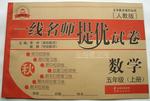��Ŀ����
������������������ĸȥ��������ʱ����ס���ùݷ��á����������Ҫ����ʾ
���ù��ϰ�дһ��Ӣ��Ͷ���ţ�
l�յ����ص���
2ԡ�Ҳ��ɾ���
3��������Χ�����ܴ��Ҳ����������䡣
4����Ա̬�����⣬�������ġ�
ע�⣺l������100���ң�
2���������������Ҫ�㣬��������䷭�룻
3�����ʵ�����ϸ�ڣ���ʹ�������
4���µĿ�ͷ�ͽ�β�Ѿ��������¼����ܴʡ�
Dear Sir or Madam��
I am writing to complain about your hotel service. My parents and I had a terrible stay in
Room 512.
____________________________________________________________________________________________
____________________________________________________________________________________________
____________________________________________________________________________________________
____________________________________________________________________________________________
____________________________________________________________________________________________
______________
Looking forward to hearing from you
Yours faithfully
Li Hua
Dear Sir or Madam,
I am writing to complain about your hotel service. My parents and I had a terrible stay in Room 512.
Firstly, the air-conditioner wouldn��t work. When I asked the staff for help, they said ok. But eventually no one came. Secondly, I found the bathroom rather dirty to bathe in. What was worse, the noise outside at night was so loud we found it hard to fall asleep. I asked to change rooms, but was refused for the reason that the hotel was full. It was surprising that the waiters treated us in a very casual and indifferent manner.
I would like you to refund my money. Unless I get a satisfactory reply, I��ll write to the Consumer Association.
Looking forward to hearing from you.
Yours faithfully,
��������
�������������һƪ��������ġ�������������������ĸȥ��������ʱ����ס���ùݷ��á����������Ҫ����ʾ�����ù��ϰ�дһ��Ӣ��Ͷ���ţ� l�յ����ص��� 2ԡ�Ҳ��ɾ���3��������Χ�����ܴ��Ҳ����������䡣4����Ա̬�����⣬�������ġ���Ҫд�������Ѿ����Ը�������Ҫ���Ƿ��������ͨ˳�ľ��ӣ��ʵ�����Щ���ݣ�ʹ���¸���ʵ��д��ʱע��ȷ����ʱ̬����������˼���ᣬ��������ϵ�����ܳ��������ѽ����⡣һ��Ҫ�����Լ��Ŀ���������ʹ���Լ���Ϥ�ĵ��ʾ�ʽ��ͬʱҲҪע��ʹ�ø��ʻ������Ϊ������ɫ��ע��Ҫ��Ĵ���100�����ң���Ҫ̫��Ҳ��Ҫ̫�١�
������˵����It was surprising that the waiters treated us in a very casual and indifferent manner. ���ﺬ��һ������Ӿ䡣
���㣺������������

 һ����ʦ�����Ծ�ϵ�д�
һ����ʦ�����Ծ�ϵ�д�
